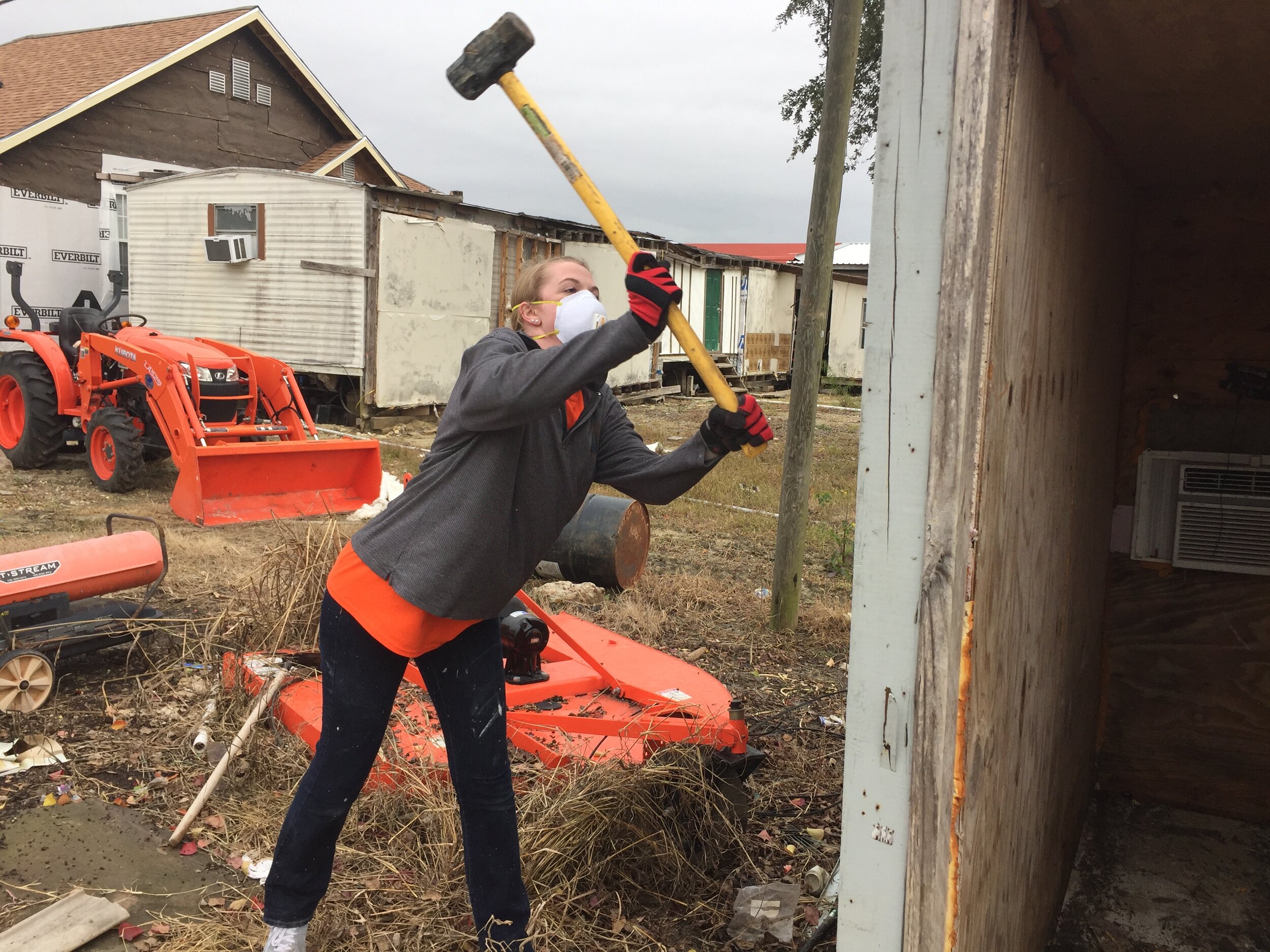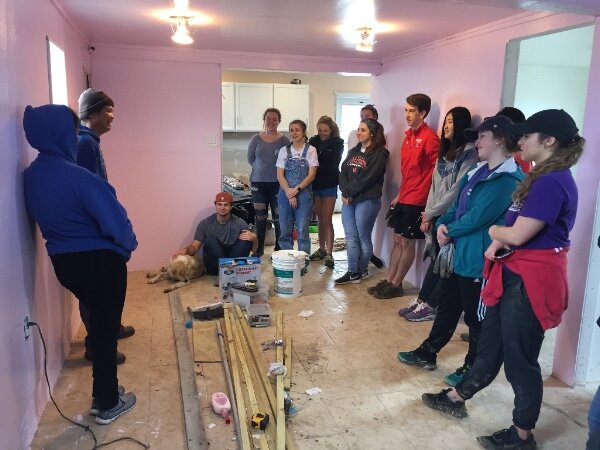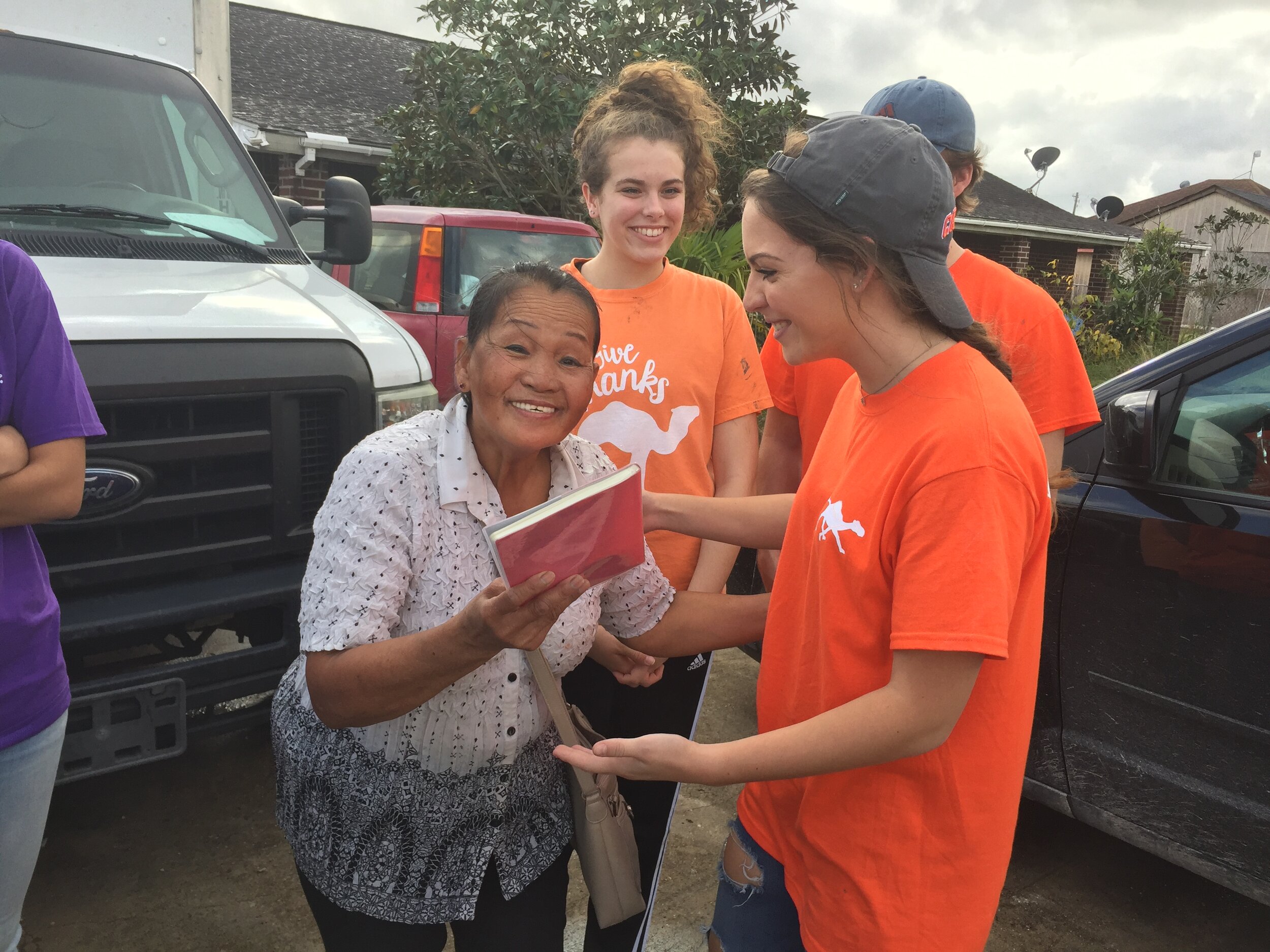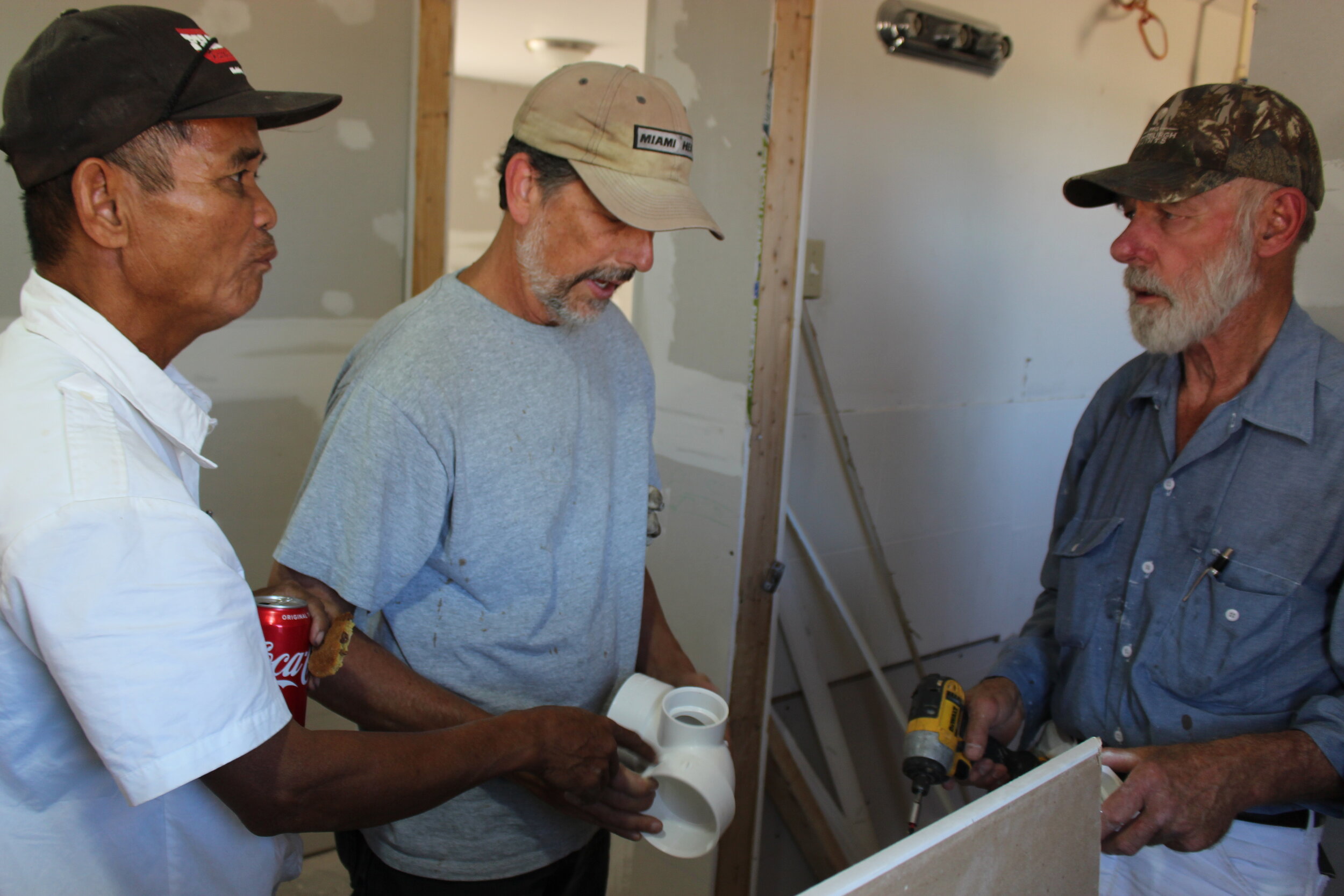As Fellowship Southwest turns 3, it’s déjà vu—again
By Marv Knox
Fellowship Southwest celebrated its third anniversary the first of this month, and to quote the great Yogi Berra, “It’s déjà vu all over again.”
About three weeks after FSW launched on Aug. 1, 2017, Hurricane Harvey blasted the Texas Coastal Bend and deluged Southeast Texas. We dropped what we were doing and pitched in to help. Lately, we’ve been helping the Rio Grande Valley and northeastern Mexico mop up from Hurricane Hanna. (Note to us: Let’s convince the people who name hurricanes to stop using the letter “H.”)
Like their massive swirls, FSW has circled from hurricane to hurricane. With Harvey, we had no track record, no experience. We thanked God for CBF churches, which set everything aside to help their neighbors, as well as CBF field personnel Butch and Nell Green, who put their ongoing ministry on hold to coordinate response to flooding in Southeast Texas. We rejoiced for the generosity of a donor who funded grants to help repair wind-damaged churches on the Coastal Bend. FSW did its part by telling the stories, communicating the needs and helping recruit volunteers and grant distribution.
When Hanna made landfall a couple of weeks ago, we stood on lessons learned from Harvey. This time, we’re working alongside CBF Disaster Response, as well as our close partner Hearts4Kids, CBF Texas and our network of pastors on the border. In the U.S., Hanna’s winds ripped roofs off homes and overturned trailers as her rains flooded colonias. On the Mexican side, Hanna deluged immigrant camps and shelters. We’re helping coordinate emergency relief to colonia families whose lives were turned upside down and helping restore order and safety for the refugees in northern Mexico.
Between Harvey and Hanna, we’ve had plenty to keep us busy.
Right from the start, we collaborated with the CBF Latino Fellowship to sponsor a convocation on Hispanic theological education. We’ve also worked alongside Logsdon Seminary at Hardin-Simmons University, as well as Truett Seminary the Garland School of Social Work at Baylor University and seminaries operated by other Christian denominations in the region. We’re committed to strengthening churches across the Southwest by securing high-quality ministry training. We believe leadership is vital for strong churches, and providing theological education is an investment in our future.
Fellowship Southwest works alongside three CBF regional affiliates—CBF Oklahoma, CBF Texas and CBF West. One of the great privileges of FSW’s early years has been collaborating with these groups. For example, our engagements have included:
CBF Oklahoma partners
CBF Oklahoma—participation in its ongoing mission project with Oklahoma Indian American Baptist Association congregations in the western part of the state; sponsorship and attendance at its annual Celebrating Excellence Awards program; promoting and telling the stories of its Pivot missions program for university students.
Iona Initiative of CBF Texas
CBF Texas—participation in its young-leader development projects, such as the Iona Initiative, which provides cultural awareness training for groups of ministers; co-sponsorship of its Baptist-Methodist dialogues; collaborative thinking and planning for ministries with its statewide leadership groups.
Navajo residents served by CBF West
CBF West—support for its mission project on the Navajo Nation in northeastern Arizona and, more recently, promotion of its COVID-19 relief efforts there; support and encouragement of church-starting projects; participation in annual retreats; and co-sponsorship of retreats for Hispanic pastors and spouses.
Beyond, this, FSW has benefited from ongoing relationships and planning with these CBF groups’ leaders—Glen Foster, coordinator of West; Steve Graham, coordinator of Oklahoma; Rick McClatchy, coordinator of Texas; Kristin McAtee, associate coordinator of Oklahoma; and Jorge Zapata, associate coordinator of Texas.
Fellowship Southwest also has benefited by collaboration with partners—too numerous to mention—across the region. Together, we’ve focused on ministry and advocacy, and touched on a range of topics—from racial equality, to human trafficking, public education, community development, capital punishment, immigration reform, fair wages and economic justice, and more.
Most notably, FSW has paved the way in cross cultural partnerships for missions on the southern border to refugees seeking asylum in the United States. We launched with a vigil in the summer of 2018, praying for detained children and separated families. Soon after, we started supporting the ministries of pastors and churches who found homeless immigrants living in their streets. We helped the pastors adapt their ministries when the U.S. government forced the refugees to await the asylum process in Mexico. Our ministry grew as our relationships blossomed. Now, FSW supports immigrant relief ministries across the full breadth of the border, and the needs and expenses grow by the month.
As FSW has approached our third anniversary, our Steering Committee has been helping us consider the steps we need to take to mature as an organization. We have developed a basic consensus on several issues:
• While maintaining a close relationship with CBF, we plan to attain nonprofit status and transform our Steering Committee into a Board of Directors. This will strengthen our ability to (a) attract and relate directly to a broader range of ministry and advocacy partners, including congregations and groups affiliated with other denominations and (b) develop long-term financial sustainability without competing with CBF and our partners for support.
• Related to this nonprofit status, we are developing strong and vital ecumenical relationships with others who share our commitment to serving people Jesus called “the least of these” and to embodying Christ’s presence in the world. We envision holding in paradox the tension of Baptist heritage and relatedness with enthusiastic ecumenical partnership with our sisters and brothers. We believe this can enable us to embody the kind of Christian unity Jesus prayed about in John 17. We also believe we can model authentic regional cooperation that may serve as a model for relationships across CBF.
• Alongside this, we are seeking vibrant and concise language that will describe FSW and its mission clearly and compellingly. From the start, we responded to deep need (think: Hurricane Harvey), and so we are nimble and responsive. But need-driven action sometimes counteracts clarity of purpose. We value our flexibility, but we seek to describe our identity so others will long to join us.
Our granddaughter Rosie just celebrated her third birthday. It was the greatest event in the world. That’s how it is with 3-year-olds and birthdays; because it’s the first time they realize this big day is all about them. FSW’s third birthday isn’t as big a deal as Rosie’s, because we know this isn’t about us. It’s about God’s kingdom coming across our region. Don’t bake us a cake; don’t throw us a party. But, by all means, pray for us.











